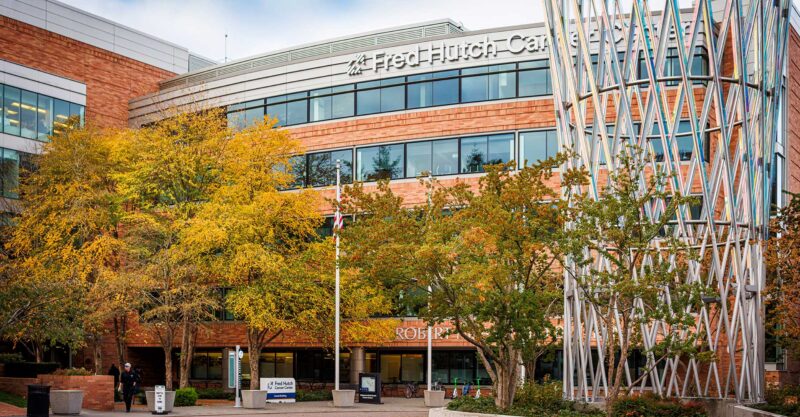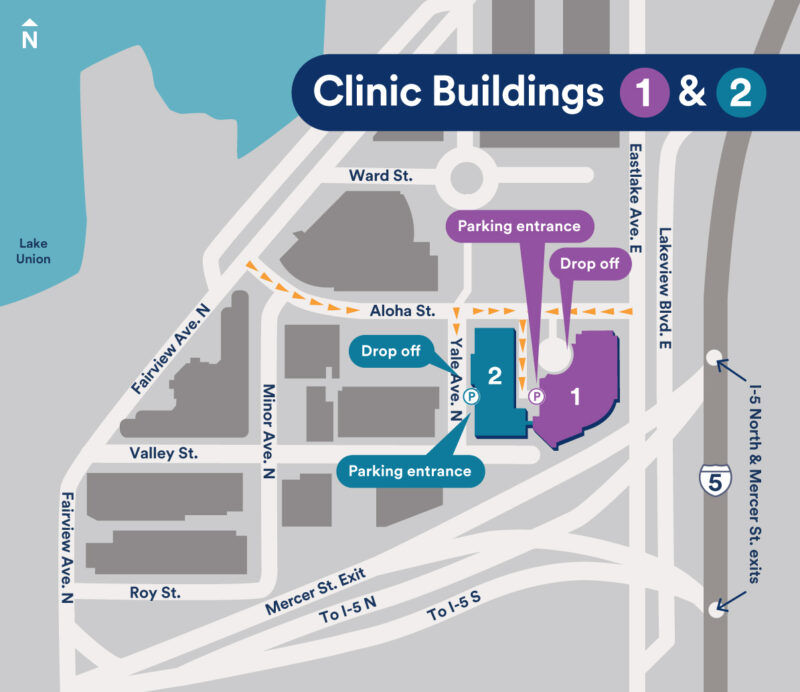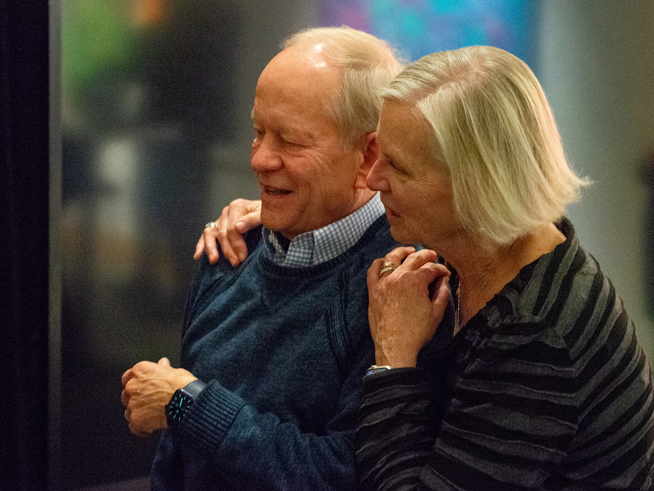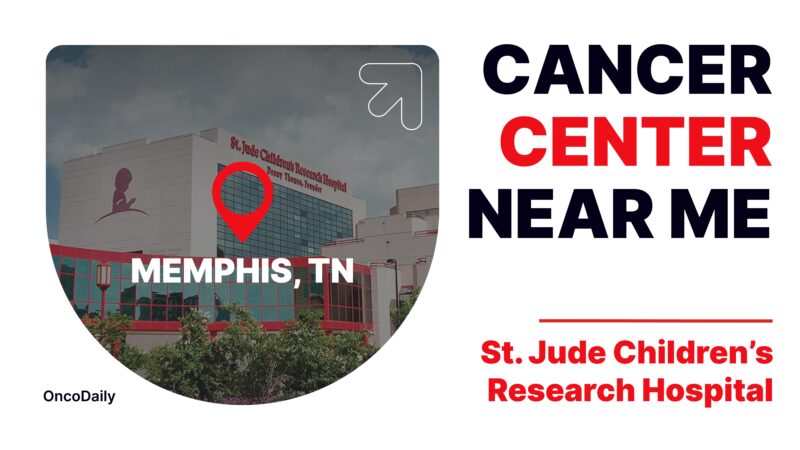Fred Hutchinson Cancer Center (Fred Hutch) is a world-renowned independent, nonprofit cancer care and research institution based in Seattle, Washington. Established in 1975, it was the first National Cancer Institute-designated comprehensive cancer center in the Pacific Northwest, earning a reputation as a global leader in bone marrow transplantation, immunotherapy, and infectious disease research. Fred Hutch combines cutting-edge scientific discovery with compassionate, patient-centered care, aiming to transform cancer treatment and improve survival rates worldwide.

photo from fredhutch.org
In April 2022, Fred Hutch underwent a significant transformation through the merger of the Fred Hutchinson Cancer Research Center and the Seattle Cancer Care Alliance, creating a unified Fred Hutch Cancer Center. This integration brought together top-tier research and clinical care teams under one roof, enhancing collaboration and streamlining access to innovative therapies for patients. Today, Fred Hutch operates multiple clinical sites offering a full spectrum of cancer services, including medical oncology, radiation and proton therapy, and advanced molecular diagnostics.
The center’s mission is to discover new cures for cancer and other deadly diseases while making life beyond cancer a reality for patients. With a legacy rooted in Nobel Prize-winning research—such as Dr. E. Donnall Thomas’s pioneering bone marrow transplant work—Fred Hutch continues to push the boundaries of biomedical science. Its commitment to personalized medicine, immunotherapy, and community engagement solidifies its role as a beacon of hope and innovation in the fight against cancer.
Where Is Fred Hutchinson Cancer Center Located?
Fred Hutchinson Cancer Center is based in Seattle, Washington, with its main campus located in the South Lake Union neighborhood. The center operates several clinical and research sites throughout the city and the greater Puget Sound region, making it easily accessible for patients and families seeking world-class cancer care.
The main campus of Fred Hutchinson Cancer Center is located at 1100 Fairview Ave N, Seattle, WA 98109. This central location is the heart of Fred Hutch’s research and clinical operations, anchoring the city’s biotech corridor and serving as the primary site for patient care, innovation, and collaboration.

photo from fredhutch.org
Historical Background and Founding of Fred Hutchinson Cancer Center
Fred Hutchinson Cancer Center (FHCC) was founded in 1975 by Seattle surgeon and oncologist Dr. William B. Hutchinson as a tribute to his younger brother, Fred Hutchinson, a Major League Baseball pitcher and manager who died of lung cancer at age 45. The center originated from the Pacific Northwest Research Foundation (PNRF), which Dr. Hutchinson established in 1956 to study cancer, heart, and endocrine diseases. In 1972, after the National Cancer Act of 1971, the PNRF received federal funding to develop an NCI-designated cancer center, leading to the creation of the Fred Hutchinson Cancer Research Center.
Dr. Hutchinson’s goal was to explore cancer biology, prevention, and bone marrow transplantation—a then-risky, experimental therapy for blood diseases. Despite limited resources and no hospital affiliation, he gathered a team of committed researchers and clinicians.
The center opened in September 1975 in Seattle’s First Hill neighborhood with a $12 million, seven-story facility. It became one of the first eight comprehensive cancer centers established under the National Cancer Act and was NCI-designated in 1976. In 1990, Dr. E. Donnall Thomas, recruited by Hutchinson, received the Nobel Prize for his pioneering work in bone marrow transplantation.
Today, FHCC is a global leader in cancer research and care, with strengths in molecular biology, immunotherapy, tumor virology, and infectious diseases. Its groundbreaking work in bone marrow transplantation continues to save lives and defines its legacy of innovation.
What Makes Fred Hutchinson Cancer Center a Leader in Cancer Research?
Fred Hutchinson Cancer Center (Fred Hutch) is internationally recognized for its pioneering research programs that span cancer biology, immunotherapy, bone marrow transplantation, tumor virology, and infectious diseases. With over 300 scientists working across five scientific divisions, Fred Hutch’s research integrates basic science, clinical trials, and public health to develop novel strategies for cancer prevention, diagnosis, and treatment.
How Did Fred Hutch Revolutionize Bone Marrow Transplantation?
A cornerstone of Fred Hutch’s legacy is its groundbreaking work in bone marrow transplantation. Building on the Nobel Prize-winning research of Dr. E. Donnall Thomas, Fred Hutch transformed this experimental procedure into a life-saving treatment for blood cancers such as leukemia and lymphoma. These advances have dramatically improved survival rates, turning previously fatal diseases into manageable or curable conditions.
What Are Fred Hutch’s Contributions to Immunotherapy?
In recent years, Fred Hutch has emerged as a leader in immunotherapy, developing innovative approaches that harness the immune system to fight cancer. The center is at the forefront of CAR T-cell therapies, T-cell engineering, and novel cancer vaccines, expanding immunotherapy’s reach beyond blood cancers to solid tumors like melanoma, breast, and lung cancer. These therapies represent a new frontier in personalized medicine, offering hope for durable remissions and fewer side effects compared to traditional treatments.
How Does Fred Hutch Address Infectious Diseases Alongside Cancer?
Fred Hutch’s expertise extends into infectious disease research, where it has made significant contributions to understanding and combating HIV/AIDS and, more recently, COVID-19. The Vaccine and Infectious Disease Division studies virus-host interactions, immune responses, and vaccine development, underscoring the center’s multidisciplinary approach to disease prevention and treatment.
How Does Collaboration Drive Scientific Innovation at Fred Hutch?
Collaboration is central to Fred Hutch’s success. The Fred Hutch/University of Washington/Seattle Children’s Cancer Consortium unites more than 650 researchers from the three institutions, fostering integrated research programs that accelerate discovery and clinical translation. This consortium supports diverse research areas including cancer immunology, hematologic malignancies, pathogen-associated cancers, and cancer epidemiology, while also emphasizing community outreach and education to address health disparities.
You Can Also Watch Delphine Chen on Radiopharmaceutical Imaging & Therapy Innovations | ASCO 2024 by OncoDaily
How Is Fred Hutch Advancing Precision Oncology?
Fred Hutch’s commitment to precision oncology and personalized medicine drives its research agenda. By leveraging molecular diagnostics, genomic profiling, and computational biology, scientists tailor treatments to individual patients’ tumor characteristics and genetic makeup, enhancing efficacy and minimizing toxicity. This patient-centered approach exemplifies Fred Hutch’s mission to eliminate cancer as a cause of suffering and death through innovative science and compassionate care.
Conclusion: What Defines Fred Hutchinson’s Research Excellence?
Fred Hutchinson Cancer Center’s research excellence is defined by its historic breakthroughs in bone marrow transplantation, leadership in immunotherapy, impactful infectious disease research, robust collaborative networks, and dedication to precision medicine—together advancing the frontiers of cancer treatment and prevention.

You Can Also Read Dr John Thompson Retires After 40 Years of Service at Fred Hutchinson Cancer Center by OncoDaily
How Has the Fred Hutch and SCCA Merger Transformed Cancer Care?
The 2022 merger of Fred Hutchinson Cancer Research Center with Seattle Cancer Care Alliance (SCCA), forming the unified Fred Hutchinson Cancer Center, marked a pivotal moment in integrating cutting-edge research with comprehensive clinical care. Now operating as a single, independent nonprofit entity and a clinically integrated part of UW Medicine, Fred Hutch streamlines patient access to innovative cancer treatments by combining the strengths of all organizations involved. This integration enhances personalized care experiences and accelerates the translation of scientific breakthroughs into effective therapies for patients.
What Clinical and Support Services Does Fred Hutch Provide?
Fred Hutchinson Cancer Center offers a broad spectrum of clinical services across multiple sites, including medical oncology, radiation therapy, proton therapy, surgical oncology, and palliative care. The center’s South Lake Union clinic in Seattle serves as a hub for many patient services, providing specialized care for a variety of cancers. Patients benefit from advanced molecular diagnostics and individualized treatment plans that tailor therapies to the genetic and molecular characteristics of their tumors, exemplifying Fred Hutch’s commitment to precision oncology.
Patient-centered support services are an essential part of the care model. Fred Hutch provides assistance with insurance and billing, helping patients navigate the financial aspects of treatment. The center offers telehealth appointments via a secure, HIPAA-compliant Zoom platform, enabling patients to consult with their care teams remotely, which is especially valuable for those living far from Seattle or with mobility challenges. Interpreter services in over 100 languages ensure clear communication between patients and providers, whether in person or via telehealth. Additional support includes transportation options such as free shuttles between clinical sites and lodging assistance for out-of-town patients. Onsite amenities like a pharmacy open year-round, free Wi-Fi, a bistro, and a resource center contribute to patient comfort during treatment.
How Do Clinical Trials Expand Treatment Options at Fred Hutch?
Fred Hutchinson Cancer Center also provides access to cutting-edge clinical trials and novel therapies through its Phase 1 Clinical Trials Program. Collaborating closely with pharmaceutical companies and research partners within the Fred Hutch/University of Washington/Seattle Children’s Cancer Consortium, the center offers patients opportunities to receive promising new treatments, including immune-modifying agents, targeted therapies, and innovative immunotherapies. This program exemplifies the center’s dedication to advancing cancer care by translating laboratory discoveries into real-world patient benefits.
Community Engagement and Education at Fred Hutchinson Cancer Center
Fred Hutchinson Cancer Center (Fred Hutch) places a strong emphasis on community outreach and education to address cancer disparities and promote health equity within its geographic catchment area. Its Office of Community Outreach & Engagement (OCOE) works closely with local communities, healthcare providers, and organizations to implement evidence-based strategies aimed at reducing cancer incidence and mortality among underserved and vulnerable populations. These efforts include increasing cancer screening rates, promoting HPV vaccination, and developing culturally tailored interventions that overcome structural barriers to care.
How Is Fred Hutch Expanding Opportunities for Underrepresented Students in Science?
Fred Hutch is also deeply committed to education and workforce diversity, particularly in biomedical sciences. Through partnerships such as the Minority Institution/Cancer Center collaboration with New Mexico State University, the center offers summer internship programs designed to provide underrepresented minority (URM) undergraduate students with mentored research experiences, seminars, and career development opportunities. These programs aim to increase the number of URM students pursuing graduate education and careers in cancer research, helping to build a more diverse scientific workforce.
How Does Fred Hutch Promote Global Cancer Education and Capacity Building?
On a global scale, Fred Hutch has established collaborative training and research partnerships, notably with the Uganda Cancer Institute (UCI). The UCI-Fred Hutch Cancer Centre in Kampala, Uganda, exemplifies this international engagement by combining clinical care, research, and training to address cancers prevalent in East Africa, such as cervical cancer and Kaposi sarcoma. This partnership supports capacity building, sustainable research agendas, and improved cancer outcomes in resource-limited settings.
What Strategies Does Fred Hutch Use to Reach Local Communities?
Public awareness and cancer prevention initiatives are integral to Fred Hutch’s community engagement. The center participates in campaigns to educate the public about cancer risk factors, screening, and prevention, often working with tribal and minority communities to co-create culturally relevant messaging. These initiatives leverage media campaigns, mobile screening programs, and community events to increase access to cancer prevention services and empower individuals to take proactive steps toward their health.
In summary, Fred Hutchinson Cancer Center’s community engagement and education efforts are multifaceted, spanning local outreach to reduce disparities, educational programs for underrepresented youth, global collaborations to build oncology capacity, and public campaigns that promote cancer prevention and early detection.
Future Directions and Challenges at Fred Hutchinson Cancer Center
Fred Hutchinson Cancer Center continues to push the boundaries of cancer research with ambitious goals to advance immunotherapy, reduce reliance on bone marrow transplantation, and develop effective cancer vaccines. The Immunotherapy Integrated Research Center (IIRC) fosters collaboration across scientific divisions to accelerate discovery in cell therapy, transplant immunology, tumor microenvironment, immune checkpoint regulation, and therapeutic vaccines. By leveraging cutting-edge technologies and computational tools, researchers aim to create the next generation of CAR T-cell therapies that are safer and more effective against solid tumors, expanding immunotherapy’s reach beyond blood cancers.
While bone marrow transplantation remains a lifesaving treatment for many blood cancers, Fred Hutch is actively working to minimize the need for transplants through novel cellular therapies and targeted treatments. Advances such as radioimmunotherapy and pre-transplant preparative regimens are designed to reduce disease burden more precisely, improving patient outcomes and decreasing transplant-related complications. Additionally, ongoing clinical trials are testing new targeted therapies to prevent relapse after transplant, a critical challenge in improving long-term survival.
Fred Hutch’s vision for the future emphasizes innovation, equity, and patient quality of life. The center recognizes challenges such as organ availability, treatment accessibility, and managing complex patient needs, particularly for immunocompromised individuals. To address these, Fred Hutch integrates multidisciplinary expertise—including infectious disease, nephrology, pulmonary, and oncology specialists—to refine supportive care and reduce transplant-related mortality. The center also prioritizes personalized medicine by harnessing molecular diagnostics and large-scale data analysis to tailor therapies uniquely to each patient’s cancer profile.
Looking ahead, Fred Hutch aims to transform radiation therapy into a precision treatment that not only targets tumors but also stimulates systemic immune responses to eradicate cancer throughout the body. The center is developing platforms to rapidly screen approved drugs against individual tumor characteristics, accelerating personalized treatment options. This integration of big data, basic research, and clinical innovation embodies Fred Hutch’s commitment to “doing hard things” and shaping a future where cancer is preventable, treatable, and ultimately curable for all patients.
You Can Also Read Cancer Center Near Me: St.Jude Children’s Research Hospital by OncoDaily

The Journey Continues: Advancing Cancer Care for All
Today, Fred Hutch stands as a beacon of hope for patients worldwide, offering access to novel therapies, personalized medicine, and comprehensive support services. The 2022 merger that unified Fred Hutch with Seattle Cancer Care Alliance and UW Medicine further strengthens its ability to deliver innovative treatments rapidly and equitably. The center’s dedication to addressing cancer disparities and engaging communities underscores its mission to improve outcomes for all patients, regardless of background.
As Fred Hutch moves forward, continued support and investment in research funding are crucial to sustaining its pioneering work. Patient engagement and community partnerships remain vital to accelerating discoveries and translating them into real-world cures. Together, these efforts will ensure that Fred Hutchinson Cancer Center remains at the forefront of the fight against cancer, turning hope into healing for generations to come.
Written by Aharon Tsaturyan MD
FAQ
What is Fred Hutchinson Cancer Center?
Fred Hutchinson Cancer Center is a world-renowned independent cancer research and treatment institution in Seattle, known for pioneering bone marrow transplantation and immunotherapy.
What services does Fred Hutchinson Cancer Center provide?
The center offers comprehensive cancer care including medical oncology, radiation therapy, proton therapy, bone marrow transplantation, and access to clinical trials.
What was the 2022 merger involving Fred Hutch?
In 2022, Fred Hutchinson Cancer Research Center merged with Seattle Cancer Care Alliance and UW Medicine to form a unified Fred Hutchinson Cancer Center, integrating research and clinical care.
Does Fred Hutch have on-site healthcare services for employees?
Yes, The Health Clinic on the Fred Hutch campus provides primary care and preventive services free to employees enrolled in a Fred Hutch-sponsored medical plan.
How can patients access clinical trials at Fred Hutch?
Patients can access cutting-edge clinical trials through Fred Hutch’s Phase 1 Clinical Trials Program, offering novel therapies in immunotherapy, targeted treatments, and more.
What support services are available for patients?
Fred Hutch offers patient-centered services including insurance support, interpreter services, transportation assistance, lodging, pharmacy access, and telehealth options.
How does Fred Hutch address cancer disparities?
Through its Office of Community Outreach & Engagement, Fred Hutch implements programs targeting underserved populations to improve cancer prevention, screening, and education.
What are Fred Hutch’s research strengths?
The center is a leader in bone marrow transplantation, immunotherapy (including CAR T-cell therapy), molecular biology, tumor virology, and infectious disease research such as HIV/AIDS and COVID-19.


